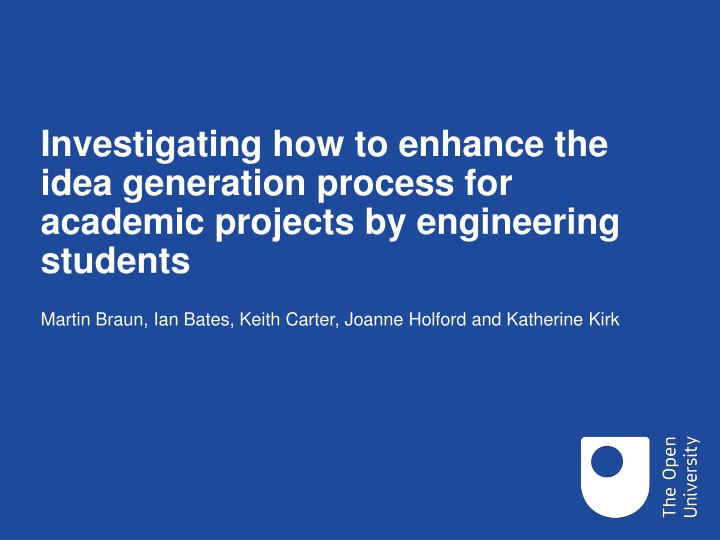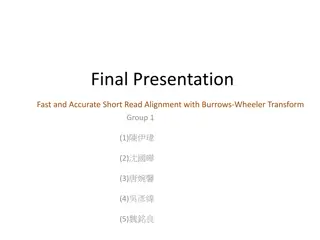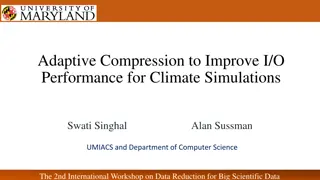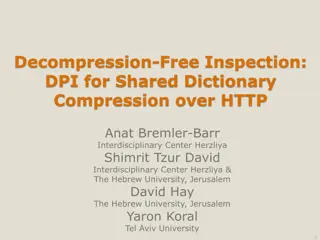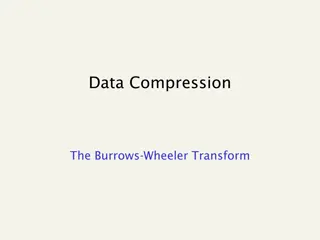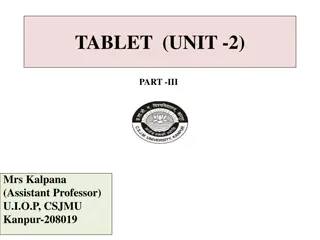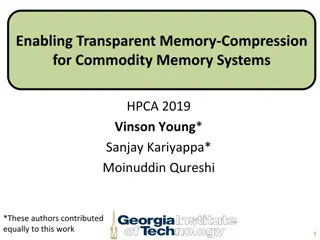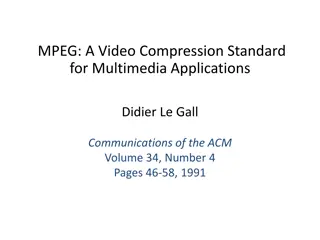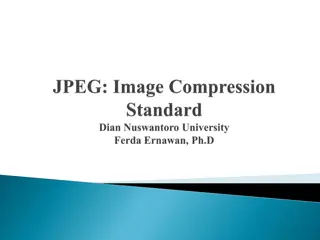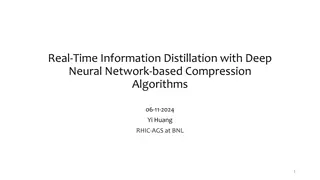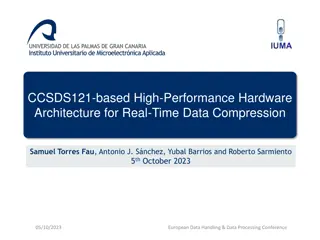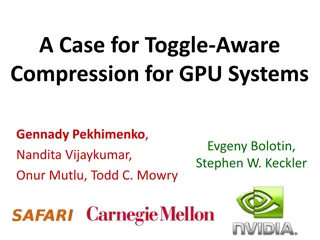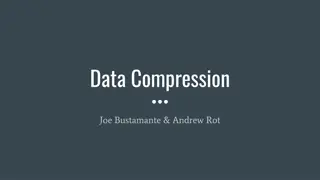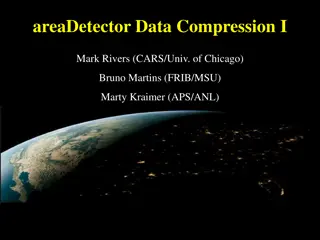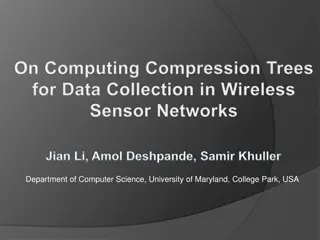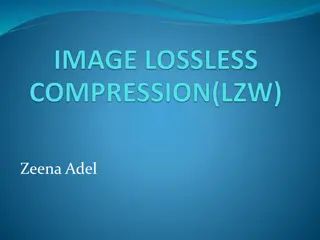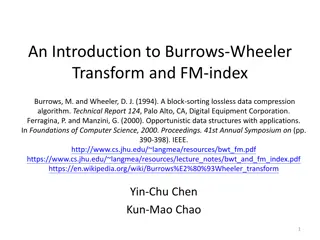Data Compression with Burrows-Wheeler Transform: Exploring Techniques for Text Compression
Learn about the Burrows-Wheeler Transform and its applications in data compression. Explore the Suffix Array, Bzip algorithm, and the process of computing the BWT matrix. Discover how to compress text efficiently by utilizing move-to-front coding, run-length coding, and statistical coding. Dive into the intricacies of compressing locally homogeneous data and the key observations behind successful compression strategies. Uncover the significance of suffix arrays in text processing and gain insights into mapping characters for improved compression techniques.
Download Presentation

Please find below an Image/Link to download the presentation.
The content on the website is provided AS IS for your information and personal use only. It may not be sold, licensed, or shared on other websites without obtaining consent from the author.If you encounter any issues during the download, it is possible that the publisher has removed the file from their server.
You are allowed to download the files provided on this website for personal or commercial use, subject to the condition that they are used lawfully. All files are the property of their respective owners.
The content on the website is provided AS IS for your information and personal use only. It may not be sold, licensed, or shared on other websites without obtaining consent from the author.
E N D
Presentation Transcript
Investigating how to enhance the idea generation process for academic projects by engineering students Martin Braun, Ian Bates, Keith Carter, Joanne Holford and Katherine Kirk
01 Background 02 Creative process Expertise Creative skills 03 Ideation toolkit 04 What we found 2
Background Section 1
Background Final year projects Student proposed Staff Continuum proposed OU business model ALs No active research portfolio Students need to come up with project idea, method, plan etc 4
Creative process Section 2
Creative process Adapted from Amabile (1998) 6
Expertise Most of the time students study subject related material Are final year students subject experts? Litzinger et al (2011): 10,000 h to develop subject expertise UG degree about 3,600 h Knight & Botting (2016): Lack deep subject knowledge to identify research question 7
Creative skills Other modules teach subject specific knowledge and skills Project module needs to support creative thinking skills T452: Constructivist Minimal guidance instruction (MGI) Not much support in identifying projects List of previous titles Something that interests you Short description of possible topic areas Kirscher et al (2006): MGI does not work Hmelo-Silver et al (2007): MGI needs sufficient scaffolding 8
Ideation toolkit Section 3
First section: Choose idea or not Run workshop to introduce toolkit 10
Have idea Suggestion form 11
No idea Ideation section 12
What we found Section 4
Studying student ideation Literature review Other OU project modules Impact of workshop (Entry/exit polls) 8 students and five T452 tutors Questionnaire after workshop 8 students Interviews with students after proposal feedback received 3 students (also discussion with tutors) 15
What we found Workshop: Only one student had a clear idea Concerned about level of project idea Discussion of ideation tools helped develop project ideas Interviews: Students benefited from facilitated workshop Other in same boat, explanation of ideation tools Students found most of the toolkit useful Both parts useful, usability needs improving Project modules need to develop creative skills Clear guidance to appropriate level 16
